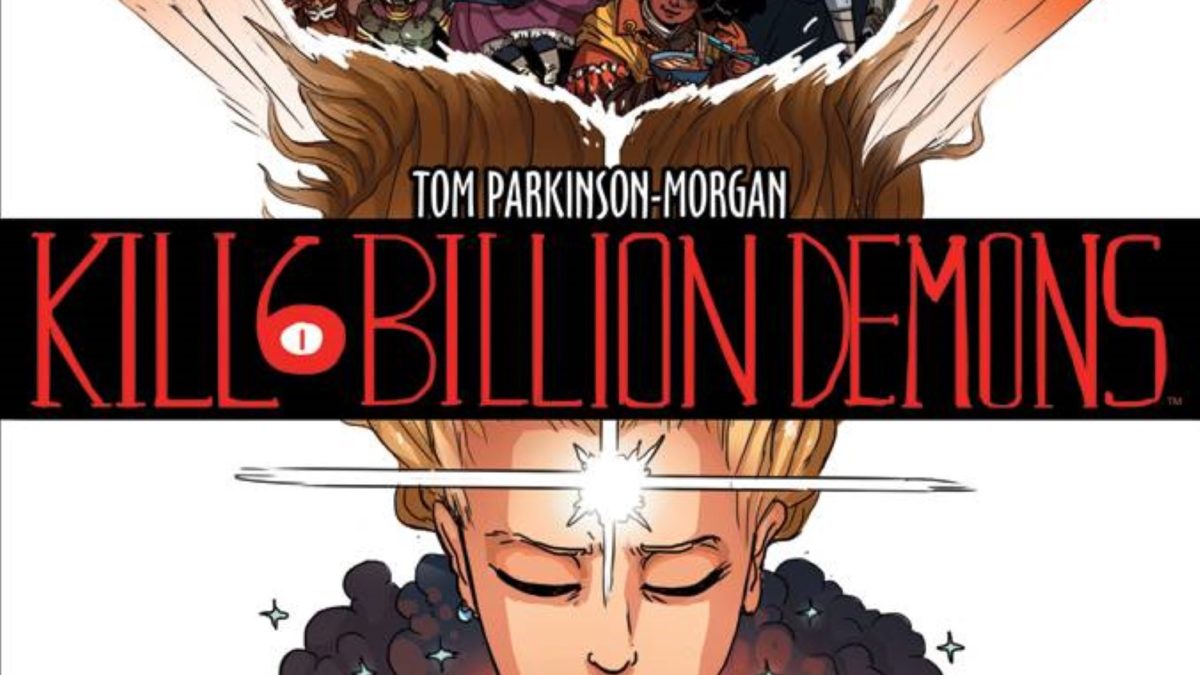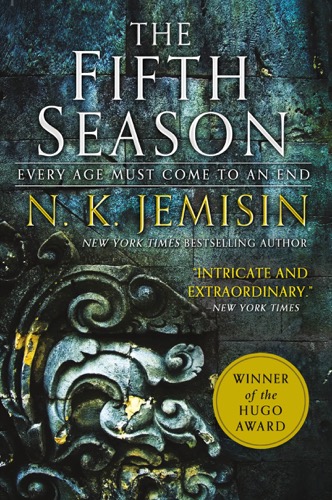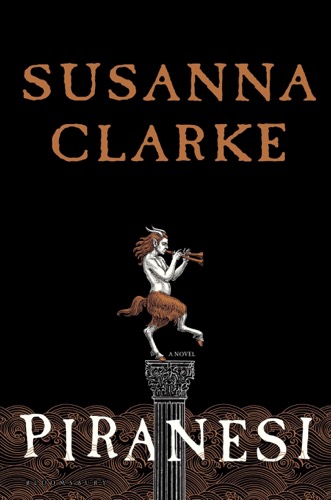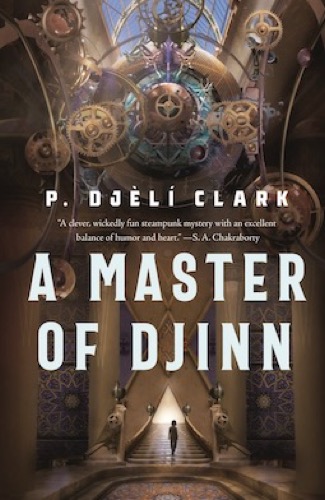
The Odyssey. Beowulf. The Epic of Gilgamesh. Throw them all in the trash, those fantasy stories are old as dirt. It’s a new century, and with that comes a fresh crop of fantasy books destined to become timeless classics. While the 21st century still has 75 odd years to add new contenders to the pile, these novels are shaping up to be the very best of the modern era. Eat your heart out, Homer. Ancient Babylonian scribes and Viking mead hall singers, you guys can do the same.
Gideon the Ninth

Gideon the Ninth is goth Dune with necromancer lesbians. If that description doesn’t qualify it to be a 21st century classic alone, I’ll break into the British Museum and eat the original tablets containing The Epic of Gilgamesh myself. A devious blend of dark fantasy and sci-fi, Tamsyn Muir’s novel takes place in a faraway star system where nine planet ruling Houses compete for the Emperor’s favor. Gideon is an unwilling warrior in service of the Ninth House, which practices its own special brand of necromancy. In order to prove just how special their particular brand of necromancy is, Ninth House heiress Harrowhark “Harrow” Nonagesimus takes Gideon to a gothic manor in order to take part in a series of trials the will grant the victors a position in the Emperor’s personal guard. Violent, macabre, and woefully romantic, Gideon the Ninth will be dug up by future generations long after its competition is dead and buried.
Kill Six Billion Demons

Tom Parkinson-Morgan’s Kill Six Billion Demons is the story of sorority sister Allison Ruth, whose attempt to lose her virginity to her boyfriend was cut short after an inter-dimensional deity ripped a hole in her dorm room wall and scattered the pair across the cosmos. Allison wakes up in the city of Throne, the center of the multiverse, where stone angels, trash talking demons, and alien flotsam and jetsam wrestle for control of the urban hellscape once known as Heaven. Yes, literal, theological Heaven. A mashup of mythologies and world religions, the story details one young woman’s journey from timid barista to god killing, demon kissing, throne taking sovereign of the universe. And when I say demon kissing, I mean that Allison starts a sapphic relationship with a fanficiton writing imp named after a popular human soda. You can’t make this stuff up. Unless you’re Tom Parkinson-Morgan, that is.
The Fifth Season

N.K. Jemison’s The Fifth Season falls into a rare subgenre of fiction: post-apocalyptic fantasy. The novel takes places on an unfathomably vast supercontinent known as The Stillness, where the peoples of its sprawling society are divided into a strict caste system. At the bottom of the social ladder are the orogenes, hated and feared for their ability to control the natural energies of the world. After a particularly powerful oregene summoned a climate cataclysm known as The Fifth Season, the survivors are left to pick up the pieces a century later. Three of these unfortunates are Essun, Damaya, and Syenite – a trio of women from separate walks of life united only by their shared orogene blood. The novel details their separate struggles with oppression across harsh and unforgiving world, and the transformations they must undergo in order to survive.
Piranesi

The fantasy novel with the most unique setting on this list, Susanna Clarke’s Piranesi takes place inside of a house. A BIG house. A labyrinthian, continent sized house with rooms big enough to contain oceans. The sole occupant of this house world is Piranesi, a man who spends his time cataloguing the statues and tending the bones that litter the endless hallways. Piranesi is periodically visited by an enigmatic man known as The Other, who claims to be visiting for “scientific research” on the mysterious house. The biggest mystery? How Piranesi got there in the first place. He doesn’t remember a thing! A surreal mix of low fantasy and supernatural sci-fi, Piranesi will have you turning more pages than its protagonist turns corners.
The Song of Achilles

Inspired by Homer’s Trojan War epic The Iliad, Madeline Miller’s The Song of Achilles has the makings of a modern myth. With prose sweeter than Olympian ambrosia, Miller retells the tale of Greek warrior Achilles and his lover Patroclus from boyhood to bitter end. The tragic tale begins with young Patroclus’ exile to a castle where Achilles is warded, where the pair become besties. As the two bloom into young men, their love blossoms as well. And like a delicate flower, the gods decide to trample on that love by sending the pair off to meet their fates in the fires of war. It’s a beautiful, tender, and devastating story that will have you sobbing for the last 50 pages, cursing the gods (and Miller herself) for creating something so painfully divine.
A Master of Djinn

P. Djèlí Clark’s A Master of Djinn is the Egyptian steampunk fantasy murder mystery you didn’t know that you needed. Set in an alternate version of 1910’s Cairo, the novel centers around Fatma el-Sha’arawi – an agent of the Ministry of Alchemy, Enchantments, and Supernatural Entities (like a magical ATF, one could say). Fatma is summoned to investigate the mass murder of a cult-vibes brotherhood dedicated to worshipping the mystic Al-Jahiz, who brought magic to the world decades ago. The culprit? A man in a golden mask claiming to be Al-Jahiz himself. In order to get to the bottom of things, Fatma will have to dive headfirst into the murky waters of Cairo’s magical underworld – bumping up against natural and supernatural threats lurking there in the dark.
Mistborn: The Final Empire

Brian Sanderson’s Mistborn: The Final Empire is high fantasy Ocean’s Eleven – a crime caper revolving around magical heist. The novel follows street thief Vin, whose penchant for pick pocketing catches the eye of magical mugger Kelsier, who is planning the job of the century. The target? The halls of the Lord Ruler – the totalitarian overlord that rules The Final Empire. The gang aren’t looking to steal gold or jewels, but the empire itself. By tapping into a system of magic that allows people to receive supernatural powers from eating metals, they might just get away with it. Mistborn is a triumph of world building that’s epic in scope, but never loses touch with the intimate particulars of its characters and the elements they munch.
Jade City

The first of the Green Bone Saga, Fonda Lee’s Jade City is an urban fantasy Romeo and Juliet romp. The stage is set on a remote island reminiscent of 1920’s Hong Kong, where a powerful crime family exerts total control over jade – a green rock that grants magic power. Well, almost total control. The family is rivaled by an upstart criminal clan that wants to take control of the jade trade, despite being ignorant of the dangerous power that jade is capable of summoning. The plot gets thicker than a bowl of oatmeal once two members of the rival families realize they have feelings for one another, which certainly complicates their loyalties. Lucky for the lovers, a supernatural plague is spreading through the city that will unite them against a common enemy. The enemy of my enemy is my babylove, as the saying goes. And if it doesn’t, it should.
The Night Circus

Erin Morgenstern’s The Night Circus is a magical realism story about a traveling circus that only appears, you guessed it, at night. Spectators of the spectacle are treated to a show of magic and illusions that looks so real it might actually be the real thing! Little do they know, it actually IS the real thing! While The Night Circus‘ creators are supernaturally gifted, they spend most of their time training two rival magicians to compete with one another to see who can put on the better magic act. At the end of their illusory competition, one of the young rivals is supposed to die. Things get even more complicated when the rivals begin to respect one another’s work so much that they fall in love with each other, and begin leaving enchanted love letters towards one another. This novel is warm and dark as a cup of coffee, or a summer night, or a… moist cave in the woods? Erin Morgenstern could probably come up with a better last metaphor there.
The Name of the Wind

Patrick Rothfuss’ The Name of the Wind begins in a small inn on the outskirts of a fantasy realm, where a weathered but handsome innkeeper named Kote lives a simple life tending to travelers. In reality, Kote is actually Kvothe, a renowned bard who whose songs could charm faeries and topple kingdoms. No, seriously, Kvothe may or may not have plunged the realm into its current civil war after possibly assassinating its king (he won’t say, and his lawyer probably told him not to). As the novel progresses, the reader learns of Kvothe’s glorious deeds, including his ability to call “the name of the wind” in order to do his magical bidding. Despite older fantasy fiction having decades of a head start, The Name of the Wind has become one of the best selling works of fantasy ever penned. Crack this novel open, and you’ll see why.
(Featured Image: Image Comics)
Have a tip we should know? [email protected]







